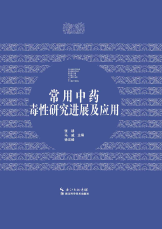
主要责任者: 张耕,马威,徐宏峰
责任方式: 主编
出版者: 湖北科学技术出版社
出版地: 武汉
字数: 1309 千字
页码: 1-798
开本: 16
中图分类号: R285.1
语种:中
定价:220.00
出版时间:2013-10
丛书多卷书否:否
书目简介:本册工具书共收录300条词条。
被引频次:10
- (三) 改革开放以后的农村市场
- (三)改革开放以来
- (三)改革开放以来的“五保户”供养
- (三) 改革开放以来的农业和农村经济
- (三)改革开放以来的农户收入
- (三)改革开放以来的发展变化
- (三)改革开放后
- (三)改革开放后的供销合作社
- (三) 改革开放后的集贸市场
- (三)改革开放和全面发展阶段
- (三) 改革开放时期
- (三)改革开放时期
- (三)改革开放时期(1985—1997年)
- (三) 改革开放的主要成就
- (三)改革开放阶段
- (三)改革开放,全面发展阶段(1979—1999年)
- (三) 改革开放,畜牧业生产健康发展
- (三) 改革成效
- (三)改革投资管理体制
- (三)改革振兴时期
- (三)改革教学内容与方法
- (三)改革林业生产责任制
- (三) 改革渔业管理体制
- (三)放宽政策,改善环境
- (三)放开搞活时期